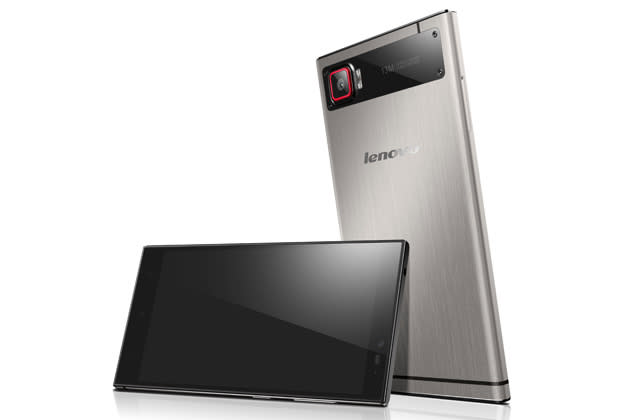Lenovo reveals the Vibe Z2, its very first 64-bit smartphone

Lenovo might not be known for its smartphones around these parts (Motorola's new wares should change that soon), but it's definitely no slouch where the rest of the world is concerned. To no one's surprise, the Chinese juggernaut's family of phones just got a little bigger today at IFA: The company just pulled back the curtain on a pair of devices called the Vibe Z2 (pictured above) and Vibe X2.
Its name would imply that the Vibe Z2 occupies the rung under Lenovo's flagship Vibe Z2 Pro, but this new entry is Lenovo's first 64-bit smartphone thanks to the 1.4GHz quad-core Snapdragon chipset housed within its 7.8mm thick chassis. That means it'll play rather nicely with the new (and currently unnamed) version of Android waiting in the wings, though at this point, it's unclear whether it'll ship with Android L preloaded. Rounding out the package are a super-bright 5.2-inch screen running at 720p (sigh), along with 32GB of internal storage, dual SIM slots, a 3,000mAh battery and a 13-megapixel rear camera with a backlit sensor.

Itching for something a little more stylish? That's where the Vibe X2 comes in. There's a 5-inch 1080p display and one of Mediatek's new True8Core chipsets lurking under the hood, but your eyes will dart to its three-layered design with colors stacked atop each other like paperbacks perched on a coffee table. Striking? You bet, but we're sure it won't be everyone's cup of tea. You'll be able to choose from white, red, gold and gray options, all of which should complement the 13-megapixel camera 'round the back nicely. And in case three layers just isn't enough for you, Lenovo's got a series of accessories -- think a super-slim battery and an amped-up speaker -- to add a fourth stratum to the mix.
The Vibe Z2 and X2 will cost $429 and $399, respectively, when they launch in October, and (to no one's surprise) they'll hit Lenovo's native China first. From there, they'll trickle into the rest of southeast Asia, eastern Europe and Latin America -- just don't expect them to hit US doorsteps any time soon.




































